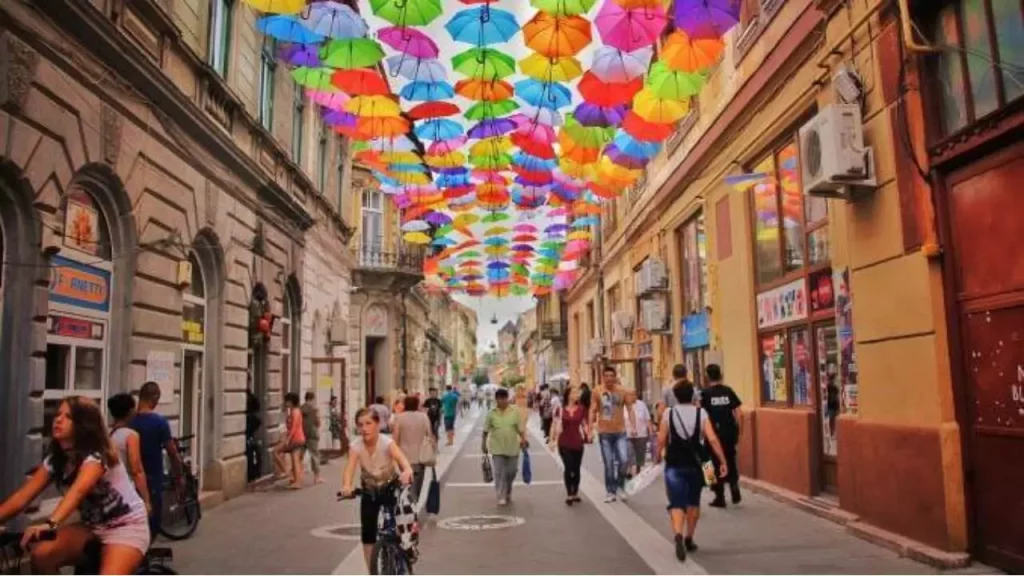Pickpockets and small-time thievery would be the main concerns when deciding if it is safe to travel to Europe in any given year. In the post-COVID era, where sustainability and the protracted conflict in Ukraine are major concerns, travel safety in Europe is now entwined with more significant challenges.
In general terms, traveling safely in Europe means what it does in other parts of the world, namely:
- Watch your belongings
- Be aware of your surroundings
- Be alcohol-smart
- Limit the time you spend walking streets alone after dark
While making travel plans, there are a few things you should be aware of that are unique to Europe.

DEALING WITH MULTIPLE LANGUAGES
More people speak more languages in a very small area of Europe than in any other region of the world.
Take into consideration that the official languages of Switzerland, a little country, are German, French, Italian, and Romansh. Dutch, French, and German are the three official languages of Belgium. From the coast of Spain to the Basque country, or from the north to the south of Italy, dialects can differ greatly.
In the various countries that comprised the former Yugoslavia, it is nearly impossible to discern who is speaking.
You’re likely to come across signs in these languages or people speaking them unless you’re visiting just one country or staying no farther east than the United Kingdom. It’s also likely that you’ll be completely confused.
Here are a few tips.
1. Try English first. A person who speaks English is usually never too far away throughout most of Europe. It should be sufficient for you to have a basic discussion with someone who speaks only a few words of English; in most situations, that is all that is necessary.
2. Try gestures second. If you are in a place where people do not speak English and you are not familiar with the language, using gestures can help you connect successfully.
3. Try an app. Duolingo is starting to offer an absurd amount of languages; you can even learn Klingon! Knowing a few words in the native tongue before you travel might be quite beneficial if you intend to immerse yourself in a nation where English speakers may be few and far between.
4. Use Google Translate. This incredible point-and-translate tool is great for deciphering road signs, mass-transit instructions, and more. Don’t leave home without it—seriously.

DEALING WITH MULTIPLE CURRENCIES
The many European nations each have their own currencies in addition to their own languages.
Although 20 countries, including Spain, France, Italy, and Germany, have adopted the Euro, which has made currency exchanges a little less complicated, one of our best safety tips is to always have some local currency on hand in case you need to pay for food from a street vendor or hail a cab in an emergency.
Your pockets may be stuffed with Swedish kroner in Norway and Danish kroner in Sweden if you’re speeding through Scandinavia.
How can you make sure you have enough local currency on hand for emergencies without having so much that you end up carrying a large amount of cash with you that you will never use?
Follow these tips.
1. Limit the amount of local currency you get to the equivalent of $20–$50. Depending on how long you intend to stay in the country, this is a flexible amount.
2. Force yourself to spend cash. A smart move would be to pay cash for food just when you’re preparing to leave a country.
3. Use a credit card most of the time. The days of incurring enormous differences in exchange rates when using a credit card abroad are long gone. Carry several credit card brands with you, for example, a Visa and an American Express card.
HAVING THE RIGHT DOCUMENTS

Here we’re talking about a lower-case-V visa—the kind you need to get into some countries.
A large portion of Europe is part of the Schengen area, which is a passport-free region that allows citizens of participating nations to travel freely between them.
To travel to nations inside the Schengen area, citizens of numerous nations outside the region require a unique document known as a Schengen visa.
Thankfully, citizens of the United States do not require a Schengen visa to enter the Schengen area, but they do require the following documents:
- A valid U.S. passport
- Evidence of their purpose of entry
- Proof of sufficient financial means
In addition, beginning in late 2023, American visitors to the member states of the European Union will need to apply for permission. The application will only take ten minutes to complete and cost eight dollars, but it will add another task for Americans to complete before traveling to Europe.
STAYING HEALTHY IN EUROPE
Even in a post-pandemic environment, American travelers to Europe will likely find some significant, fundamental health-related changes in the European travel experience.
GREATER CROWD CONTROL
Overtourism was an issue before the epidemic; in the interim, cities like Venice are proposing to tighten restrictions on tourist access to numerous popular spots after reevaluating what they want to offer as part of the tourism experience.
Prices might go up as a result, but more considerably, travelers would have to work harder to get in line for many popular sites.
FEWER CARS

The pause in tourism has prompted many communities to speed up the demarcation of their main roads. Major roads, such as the Rue de Rivoli in Paris, for example, are now accessible to bicycles and pedestrians only.
In addition, there may be a rise in the need for public transport, bike, e-bike, and scooter rentals, as well as new risks for pedestrians to be aware of.
Regardless of how you look at it, traveling through the largest cities in Europe will never be the same.
HEIGHTENED SANITATION PROTOCOLS
The epidemic has increased the bar for what constitutes a clean space. It is expected to remain elevated for the foreseeable future. What effects might stricter cleaning guidelines have on Airbnb and other rental properties?
MORE THOROUGH CHECKS OF PEOPLE ENTERING COUNTRIES
Mixed news has been reported in this area. Arriving from China, travelers must undergo additional security checks in nations like the Netherlands. If not, anticipate travel to Europe to be substantially the same as it was before the COVID pandemic; however, the next pandemic is always possible.
Europe travel has undergone a significant transformation. The good news is that it could undergo positive change. Long into the future, all passengers will benefit from the new, safer, cleaner, greener, and more sustainable travel experience in Europe.








